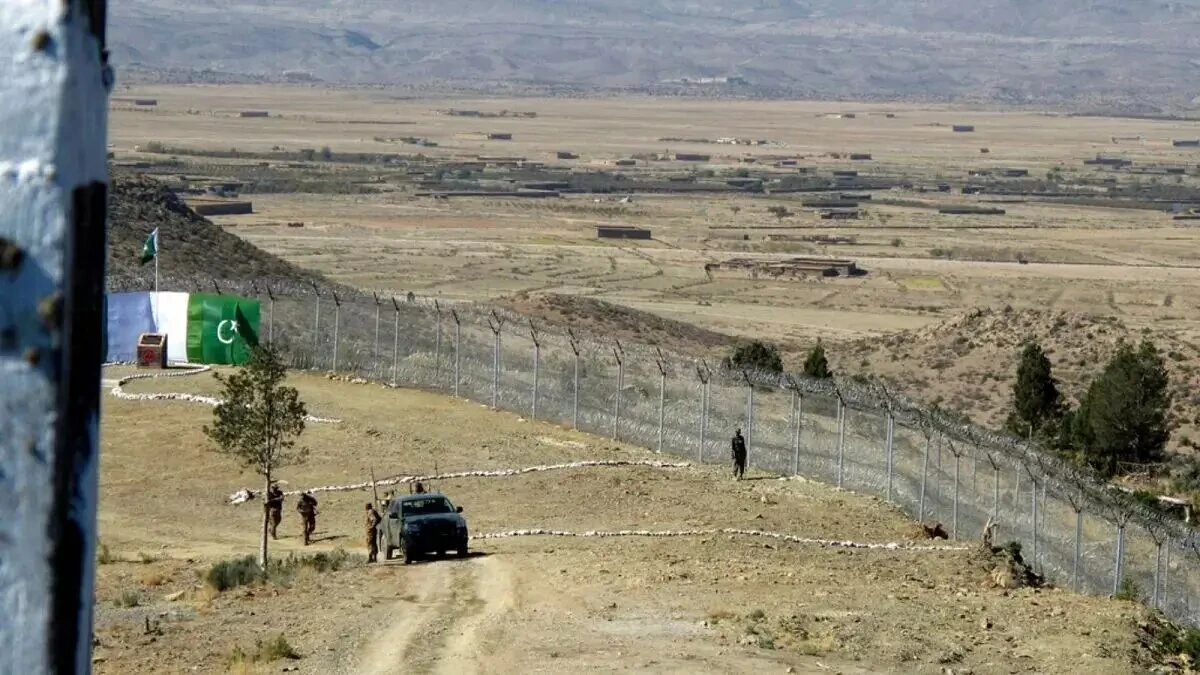In the shifting sands of South Asian geopolitics, the recent diplomatic warmth between India and Afghanistan, particularly under the Taliban regime, has raised alarm bells in Islamabad. While India’s overtures to Kabul may appear humanitarian or economic on the surface, the strategic subtext reveals a recalibration of regional influence designed to constrain Pakistan’s manoeuvrability. The events of 2025, India’s Operation Sindoor and Pakistan’s kinetic actions against Afghanistan—have transformed this convergence from a theoretical threat into a lived reality. This article explores the contours of Indo-Afghan alignment, its long-term strategic intent, and the implications for Pakistan’s national security, drawing on expert analysis and the enduring wisdom of thinkers like Allama Iqbal and Khushhal Khan Khattak.
The Strategic Realignment: India’s Afghan Playbook
India’s renewed engagement with the Taliban-led Afghanistan marks a significant departure from its earlier stance. After years of supporting the US-backed Afghan Republic and opposing Taliban rule, New Delhi has reopened its embassy in Kabul, initiated humanitarian programs, and held high-level talks with Taliban officials. This rapprochement is not merely diplomatic, it is strategic.
• Countering Pakistan’s Influence: By engaging Kabul directly, India seeks to dilute Pakistan’s strategic depth and disrupt its western flank.
• Intelligence and Surveillance: India’s presence in Afghanistan enables intelligence gathering near Pakistan’s sensitive border regions, including Balochistan and Khyber Pakhtunkhwa.
• Soft Power Projection: Through infrastructure projects, scholarships, and cultural diplomacy, India is embedding itself in Afghan civil society, creating long-term influence.
Afghanistan’s Calculus: Tactical Leverage or Strategic Shift?
The Taliban’s outreach to India is equally calculated. Facing deteriorating ties with Pakistan, exacerbated by border clashes and accusations of harbouring Tehrik-e-Taliban Pakistan (TTP) militants, Kabul is signalling its willingness to diversify alliances.
• Strategic Autonomy: By engaging India, the Taliban seeks to reduce overdependence on Pakistan and assert its sovereignty.
• Economic Incentives: India’s developmental aid and trade potential offer Kabul a lifeline amid economic isolation.
• Security Bargaining: The Taliban may leverage ties with India to extract concessions from Pakistan on border disputes and refugee policies.
The Long Game: Encirclement and Strategic Pressure
The Indo-Afghan convergence appears to be part of a broader strategy to encircle Pakistan and apply multi-vector pressure:
| Strategic Axis | Implication for Pakistan |
| Eastern Front (India) | Conventional military threat and LOC tension |
| Western Front (Afghanistan) | Asymmetric threats via TTP, BLA, and border instability |
| Diplomatic Isolation | Undermining Pakistan’s narrative on Kashmir and terrorism |
| Economic Disruption | Blocking trade routes and regional connectivity |
This encirclement strategy echoes the doctrine of “strategic squeeze,” where adversaries exploit geographic vulnerabilities to limit manoeuvrability and escalate internal unrest.
Lessons from 2025: Kinetic Realities and Strategic Reckoning
Operation Sindoor (May 2025)
India’s Operation Sindoor was launched in response to the Pahalgam terrorist attack, which killed 26 civilians. The operation targeted alleged terror infrastructure across the Line of Control using precision strikes, drones, and electronic warfare systems. Indian officials hailed it as a model of jointmanship and indigenous capability.
Key Lessons for Pakistan:
• Technological Superiority Matters: India’s use of indigenous drones and layered air defence exposed gaps in Pakistan’s electronic warfare preparedness.
• Rapid Mobilization is Critical: The four-day conflict underscored the need for Pakistan to enhance its rapid response capabilities along the eastern front.
Pakistan’s Kinetic Actions in Afghanistan (October 2025)
• Following a deadly TTP attack in Orakzai that killed 11 Pakistani soldiers, Pakistan launched targeted airstrikes against terrorist hideouts inside Afghanistan. The strikes were precise and punitive, with minimal collateral damage, and received no international condemnation.
Summarizing the Key Lessons for Pakistan:
• Assertive Deterrence Works: Pakistan’s calibrated response sent a clear message to Kabul about the costs of harbouring anti-Pakistan militants.
• Diplomatic Timing Is Crucial: The lack of global backlash suggests that Pakistan’s narrative, framed around counterterrorism, was effective.
• Western Flank Vulnerability Persists: Despite tactical success, the operation revealed enduring vulnerabilities along the Durand Line, especially in intelligence coordination and border control.
Expert View: Strategic Consequences for Pakistan
Dr. Khushboo Ejaz warns that “India’s soft power expansion in Afghanistan, coupled with its intelligence footprint, poses a long-term challenge to Pakistan’s western security buffer.” She emphasizes that Pakistan must recalibrate its foreign policy to avoid strategic isolation.
Haroon Janjua adds that “the Taliban’s border aggression and India’s diplomatic overtures form a pincer movement that could destabilize Pakistan’s border regions and stretch its military thin.”
Proposed Future Strategy: From Tactical Response to Strategic Vision
To counter this two-pronged threat, Pakistan must move beyond episodic retaliation and embrace a coherent, long-term strategy rooted in resilience, regional integration, and strategic clarity.
Integrated Border Security Doctrine
• Establish a joint civil-military command for western border management.
• Deploy AI-enabled surveillance systems and biometric border controls.
• Enhance intelligence-sharing with Iran and China to monitor militant movements.
Strategic Diplomacy and Regional Balancing
• Reinvigorate trilateral forums with China and Russia to counterbalance Indo-Afghan alignment.
• Engage the Gulf states and Central Asia through energy diplomacy and trade corridors.
• Offer Afghanistan conditional economic incentives tied to non-interference and border stability.
• Narrative and Cultural Diplomacy.
• Launch a regional media initiative to counter disinformation and promote Pakistan’s peace-building role.
• Leverage shared cultural heritage, Sufi traditions, Pashto poetry, and Islamic scholarship, to build soft power bridges.
• Promote Iqbal’s vision of unity and Khushhal’s ethos of honour to inspire national cohesion.
Military Modernization and Strategic Deterrence
• Invest in indigenous drone and cyber warfare capabilities.
• Expand rapid deployment forces for border contingencies.
• Develop a doctrine of “strategic proportionality” to deter aggression without escalation.
Historical Echoes: Lessons from Iqbal and Khushhal Khan Khattak
In moments of strategic uncertainty, the wisdom of poets and philosophers offers clarity.
Allama Iqbal, in his Allahabad Address, envisioned a Muslim polity rooted in self-respect and strategic foresight. He warned:
“People who have no hold over their process of thinking are likely to be ruined by liberty of thought.”
Iqbal also wrote:
“Nations are born in the hearts of poets; they prosper and die in the hands of politicians.”
Iqbal’s insight into Afghanistan’s centrality remains timeless:
“Asia is like a body with Afghanistan as its heart. If there is discord in the heart, the whole body suffers.”
آسیا یک پیکر آب و گل است، قلب او در سینهٔ افغان پل است
This couplet is not mere metaphor, it is strategic doctrine. Afghanistan’s stability is Asia’s stability. Pakistan must treat its western frontier not as a buffer zone but as a vital artery of regional peace.
Pakistan’s strategic narrative must be reclaimed by thinkers, not merely reactionary policymakers.
Khushhal Khan Khattak, the warrior-poet of the Pashtuns, offers a tribal yet timeless lesson:
“If the Pashtuns unite, no woman born will have the courage to face them.”
This is not just a call for ethnic unity, it is a metaphor for national cohesion. Pakistan’s internal divisions, if left unaddressed, will be exploited by external actors.
Khushhal also declared:
“An Honourable has only two tasks to perform, either he will give up his life or will achieve the target.”
In strategic terms, this translates to resolve: Pakistan must define its long-term goals and pursue them with clarity and courage.
Conclusion: Towards Strategic Clarity
The Indo-Afghan alignment is not a passing phase—it is a recalibration of regional power. For Pakistan, the threat is not merely military but strategic: a slow erosion of influence, narrative, and manoeuvrability. To counter this, Pakistan must move beyond reactive defence and embrace proactive strategy.
This includes:
• Reimagining its western border not as a buffer but as a gateway to Central Asia.
• Investing in cultural diplomacy that resonates with shared heritage across the region.
• Building strategic partnerships based on mutual respect, not transactional dependency.
As Iqbal urged:
“Khudi ko kar buland itna ke har taqdeer se pehle, Khuda bande se khud pooche bata teri raza kya hai.”
Elevate the selfhood so high that before destiny is written, God Himself asks: What is your will?
Pakistan must elevate its strategic selfhood—its “khudi”—so that it shapes its destiny rather than merely reacting to others’. That iconic couplet from Allama Iqbal is more than poetic flourish—it’s a strategic doctrine wrapped in metaphysical insight. Let’s unpack it and extend its relevance to Pakistan’s geopolitical posture:
Strategic Selfhood: From Metaphor to Mandate
Iqbal’s concept of khudi—often mistranslated as ego—is actually a call to cultivate self-awareness, moral strength, and purposeful agency. In the context of Pakistan’s foreign policy and regional strategy, this couplet becomes a blueprint for proactive sovereignty:
• Elevate Vision: Pakistan must define its long-term strategic goals not in reaction to India, Afghanistan, or global powers, but from its own values, aspirations, and regional responsibilities.
• Shape Destiny, Don’t Chase It: Rather than responding to encirclement or isolation, Pakistan should initiate regional frameworks—economic corridors, cultural diplomacy, and climate cooperation—that reflect its own strategic imagination.
• Moral Authority Matters: Iqbal’s khudi is not arrogance—it’s ethical clarity. Pakistan’s narrative must be rooted in justice, inclusion, and peace, especially in Kashmir, Afghanistan, and its internal governance.
• Resilience Through Identity: A nation that knows its purpose—culturally, historically, and strategically—is harder to destabilize. Pakistan must invest in intellectual capital, indigenous innovation, and cultural cohesion to reinforce its strategic selfhood.
From Iqbal’s Verse to Policy Doctrine
In today’s volatile Indo-Afghan arc, Iqbal’s message urges Pakistan to:
• Lead with conviction, not concession.
• Build alliances from strength, not desperation.
• Craft narratives that inspire, not merely defend.
Elevating khudi means Pakistan must become the author of its own strategic story—not a footnote in someone else’s playbook.
The views expressed in this article are the author’s own. They do not necessarily reflect the editorial policy of the South Asia Times.







![Prime Minister Narendra Modi with External Affairs Minister S. Jaishankar at an official event. [Photo Courtesy: Praveen Jain via The Print].](https://southasiatimes.org/wp-content/uploads/2026/02/20-scaled-e1755601883425-1024x576-1.webp)